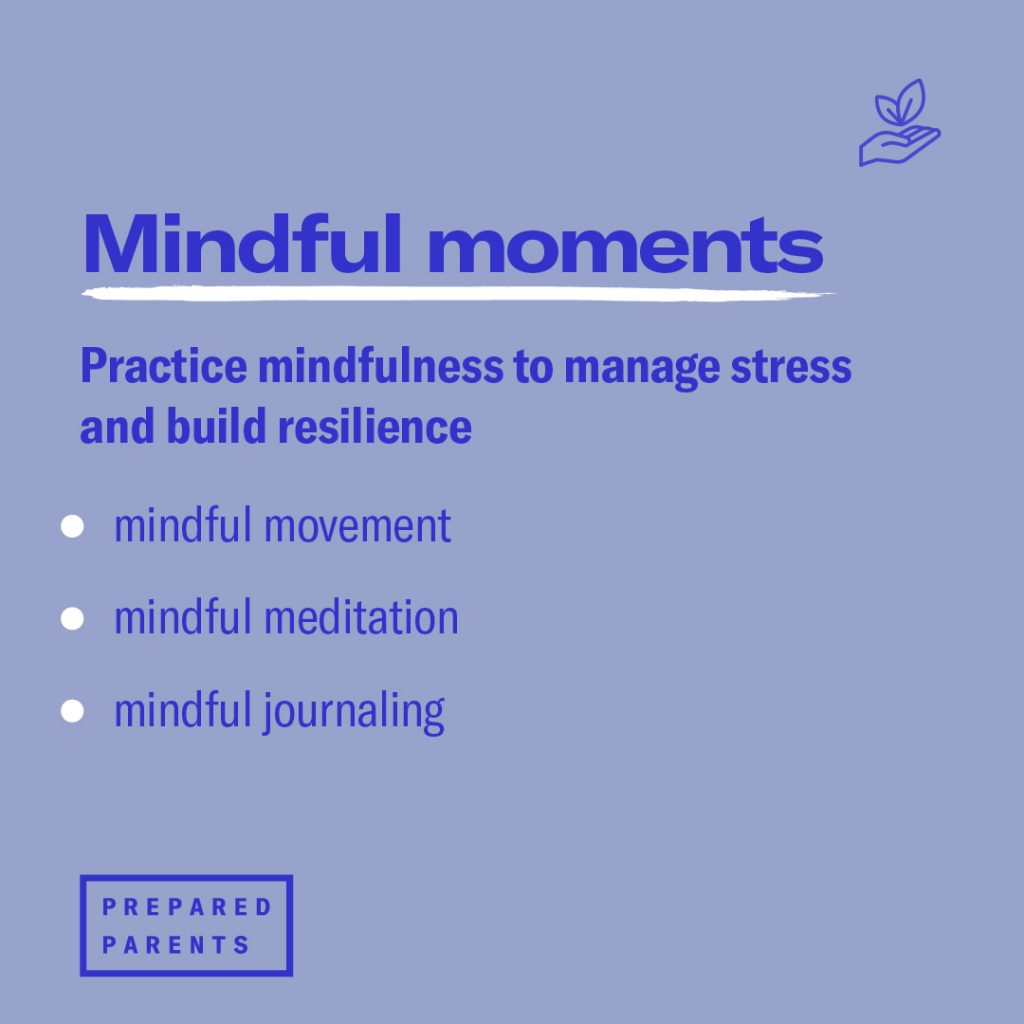It is normal for kids and parents to feel sad, stressed, confused, scared, or angry during change and uncertainty. The challenge for us as parents is not avoiding those feelings. No—the challenge is, how do we make mindful decisions in response?

Mindfulness is the practice of intentionally bringing awareness to the present moment so we can choose our response to what is happening.
During times of uncertainty, these practices can help us to calm down and become more aware of our moods and thoughts. For kids, it can be helpful both as they transition through different parts of the day and when they face chaotic situations. Plus, it’s a great way for them to be ready to learn, emotionally and mentally.
Self-regulation is one of the 16 Habits of Success that Prepared Parent’s resources are rooted in. The Habits of Success are social and emotional mindsets and behaviors that set kids up for success in school and life. They were developed by educational psychologist Dr. Brooke Stafford-Brizard of education research non-profit Turnaround for Children, in her Building Blocks for Learning Framework.
Every kid needs a set of foundational skills that gives them the mental and emotional security it takes to engage and connect with others. These foundational skills are represented on the first row of the framework:
- Attachment: Having a strong bond with an adult who cares about me
- Stress management: Figuring out how to become calm and balanced when situations get stressful
- Self-regulation: Directing and maintaining my attention and emotions
When kids show up to school stressed or emotionally overwhelmed, they’re unable to focus on learning. Healthy development starts with strong parental or caregiver bonds, and is strengthened when our kids learn how to manage stress and emotions, so that they can focus on external goals.Mindfulness is one way kids can self-regulate and manage stress. Research into mindfulness has shown myriad benefits, including decreased negative thoughts, reduced stress, better working memory, improved focus, fewer emotional reactions, greater cognitive flexibility, better relationships, and more.
Here are some kid-friendly mindfulness activities you can do throughout the day to build your mindfulness skills:
- Morning: Just Breathe, but with kindness
This is a one-to-one activity, so pair up with your kid (or if you have more than one child, pair them up). As you face each other, first take a deep breath in, then out, before making kindness wishes. First say a kindness wish for yourself, something like asking for patience, courage, peace, or hope. Then say a kindness wish to your kid. Reverse, so your kid can do the same for you. Finally, together make kindness wishes for your community, the situation we’re in right now, and the world. End by taking a deep breath in and a deep breath out. - Mid-Day: Walk in Silence
Go outside, but try not to talk. As you walk around, listen intently to the sounds you hear. The purpose? This activity encourages kids to tap into their sense of hearing and attuned to the environment around them through listening. Ask each kid to describe 3 different sounds they notice. Take along some paper and pencils to create maps and mark where the sounds were heard. You might repeat this exercise tomorrow to listen for the same sounds in the same places. - Evening: Toss a Ball with Intention
Consider this a slower version of the game hot potato. Sit in a circle and toss a ball. Ask the person who catches the ball one of these questions. When they toss it, they can ask the same question or a different one. What other questions would you add to this list
Who inspires you?
What made you smile today?
What’s something positive you did today?
What do you love about yourself?


